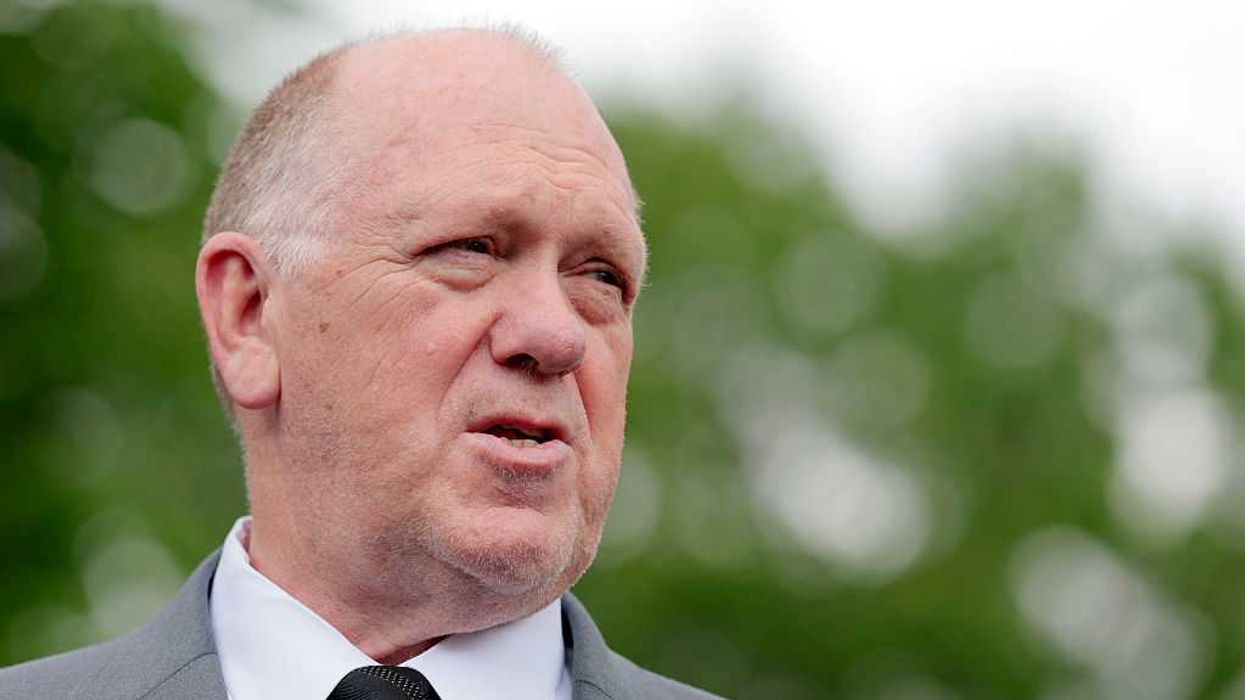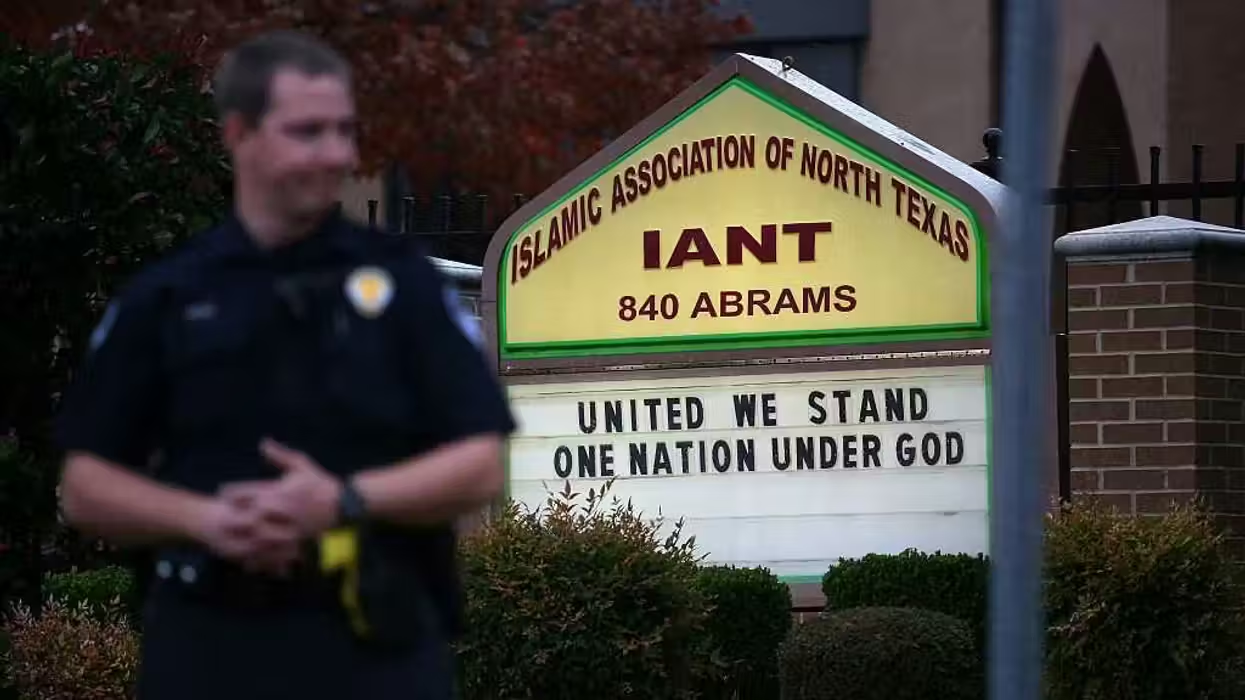AUSTIN, Texas (TheBlaze/AP) -- The Texas Senate passed sweeping new abortion restrictions late Friday, sending them to Republican Gov. Rick Perry to sign into law after weeks of protests and rallies that drew thousands of people to the Capitol and made the state the focus of the national abortion debate.
Republicans used their large majority in the Texas Legislature to pass the bill nearly three weeks after a filibuster by Democratic Sen. Wendy Davis and an outburst by abortion-rights activists in the Senate gallery disrupted a deadline vote June 25.
Called back for a new special session by Perry, lawmakers took up the bill again as thousands of supporters and opponents held rallies and jammed the Capitol to testify at public hearings.
The bill requires doctors performing abortions to have admitting privileges at nearby hospitals, allows abortions only in surgical centers and bans abortions after 20 weeks of pregnancy.
Following the vote, there was still chaos unfolding in the Texas Capitol as pro-abortion protesters rallied against the decision late into the night.
 Abortion rights advocates fill the rotunda of the State Capitol as the Senate nears the vote on Friday night, July 12, 2013. Texas senators were wrapping up debate on sweeping abortion restrictions Friday night and were poised to vote on a measure after weeks of protests. Credit: AP
Abortion rights advocates fill the rotunda of the State Capitol as the Senate nears the vote on Friday night, July 12, 2013. Texas senators were wrapping up debate on sweeping abortion restrictions Friday night and were poised to vote on a measure after weeks of protests. Credit: AP
 Pro-abortion rights protesters are removed from the Texas Senate gallery by Texas state troopers as the Senate debates an abortion bill, Friday, July 12, 2013, in Austin, Texas. Credit: AP
Pro-abortion rights protesters are removed from the Texas Senate gallery by Texas state troopers as the Senate debates an abortion bill, Friday, July 12, 2013, in Austin, Texas. Credit: AP
 A pro-abortion rights protester struggles with Texas state troopers in the Texas Senate gallery as the Senate debates an abortion bill, Friday, July 12, 2013, in Austin, Texas. Credit: AP
A pro-abortion rights protester struggles with Texas state troopers in the Texas Senate gallery as the Senate debates an abortion bill, Friday, July 12, 2013, in Austin, Texas. Credit: AP
 Dave Cortez, right, and other abortion rights advocates scream outside the Senate Chamber during the debate of abortion restriction bill, Friday July 12, 2013, in the Capitol in Austin, Texas. Credit: AP
Dave Cortez, right, and other abortion rights advocates scream outside the Senate Chamber during the debate of abortion restriction bill, Friday July 12, 2013, in the Capitol in Austin, Texas. Credit: AP
And then there's this video of officers with the Texas Department of Public Safety dragging pro-abortion protesters out of the State Capitol (Vine via NBC DFW's Omar Villafranca):
Anti-abortion groups insisted their primary goal was to protect women's health while reducing the number of abortions in Texas. According to state figures, about 72,000 abortions were performed in Texas in 2011, less than 400 after the 20th week of pregnancy.
Perry, a Republican who said last week he won't seek a fourth full term in office in 2014, has said he will sign the bill.
The restrictions are a top priority for the Christian conservative voters who make up a majority of Texas Republican voters and want abortions banned. Although the Texas bill mirrors measures passed in Mississippi, Ohio, Oklahoma, Alabama, Kansas, Wisconsin and Arizona, but passing them in the nation's second-most populous state is a major victory for the anti-abortion movement.
Democrats, however, see an opportunity that could help them break a 20-year statewide losing streak. They believe Republicans have overreached in trying to appease their base and alienated suburban women, a constituency that helped President Barack Obama win re-election. Democrats have helped organize the recent protests - more than 5,000 people swarmed the Capitol last week - and top lawmakers have toured the state as part of Planned Parenthood's "Stand With Texas Women" campaign.
Opponents contend the restrictions violate the U.S. Supreme Court's 1973 Roe v. Wade decision that legalized abortions, and it's unclear if they'll survive legal challenges. Courts have suspended some similar provisions in other states.
The issue had been simmering for months in Texas but didn't get a vote in the regular session. It didn't explode nationally until Perry put the restrictions on the agenda halfway through the first special session and Davis' filibuster and the Senate outburst stopped the bill.
This Senate vote came with about three weeks left in the session, making another filibuster impossible and leaving Democrats with almost no chance of stopping the bill. After the June 25 outburst by abortion-rights activists, the Senate's leader, Republican Lt. Gov. David Dewhurst, vowed to strictly enforce the chamber's rules of decorum. The Texas Constitution gives Dewhurst the ability to have violators jailed for up to 48 hours. Dozens of state troopers guarded the gallery and patrolled the hallways Friday.
–
[related]

 Abortion rights advocates fill the rotunda of the State Capitol as the Senate nears the vote on Friday night, July 12, 2013. Texas senators were wrapping up debate on sweeping abortion restrictions Friday night and were poised to vote on a measure after weeks of protests. Credit: AP
Abortion rights advocates fill the rotunda of the State Capitol as the Senate nears the vote on Friday night, July 12, 2013. Texas senators were wrapping up debate on sweeping abortion restrictions Friday night and were poised to vote on a measure after weeks of protests. Credit: AP






